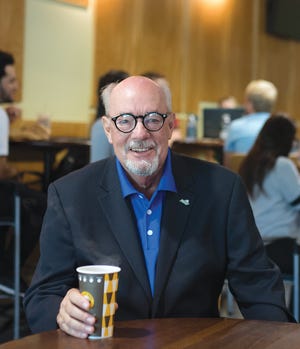As a Lee County citizen, retiree, taxpayer, former president of Florida Gulf Coast University, and long-time satisfied patient of Lee Health, I strongly support the conversion of Lee Health to a community-focused, not-for-profit health system. From my extensive experience and observations in a number of communities, it is clear to me that conversion is a critical step to adapt to today’s marketplace and ensure the longevity and quality of Lee Health’s services in our community and as a safety net provider for those who do not have the ability to pay for their health care.
I have personally witnessed similar transitions in cities like Philadelphia, Chicago, New Orleans, and my hometown of Crosby-Ironton, Minnesota. Each of these communities had to make the decision to transform their health care system to preserve their ability to care for their citizens, and the decision Lee Health faces today is no different. In Crosby-Ironton in particular, a town of 3,000, the main hospital went bankrupt. In response, the surrounding communities organized a private nonprofit called Cuyuna Medical Center, which has since grown into one of the best health care providers in northern Minnesota. This shift expanded services from a small population to 80,000, ensuring that residents, including my parents, would not have to travel far to receive quality care. This transformation was not only beneficial to the community, it was essential. Likewise, Lee Health must adapt to continue providing quality care to our community.
The current structure of the Lee Health system, while historically effective, is already under significant pressure due to changes in competition, costs, reimbursement and public policy. Providing quality care is more challenging than ever, and these pressures will only increase in the future.
By converting, Lee Health would have the opportunity to compete on a level playing field in a challenging economic environment and expand its services to meet the needs of patients wherever they are. Institutions like Mayo Clinic and Cleveland Clinic have proven that growth and expansion are necessary to be as effective as possible. Lee Health currently faces geographic constraints that limit its potential, and the conversion would allow it to overcome these limitations and provide care to even more patients.
Finally, the conversion allows Lee Health to maintain and strengthen its mission, ensuring that it remains our community’s safety net provider, caring for patients regardless of their ability to pay. In the current model, the economic strain will prove too great, and a safety net full of holes is no safety net at all.
The reality of contemporary health care economics is clear and undeniable. Providers must have a patient base large enough to cover the costs of caring for the underinsured or uninsured. In addition, the patient base must also be large enough to achieve economies of scale to control costs and cover the high costs of facilities, technology, and specialty care. Without this, the alternative is substantial and likely increasing taxpayer subsidy, which Lee Health will not do. While this may be considered unfortunate by some, it is nonetheless an unambiguous truth. Lee Health must fully adapt to this reality. Therefore, I support the conversion of Lee Health for the betterment of both the health care system and the community it serves.
Mike Martin is the former president of Florida Gulf Coast University.


